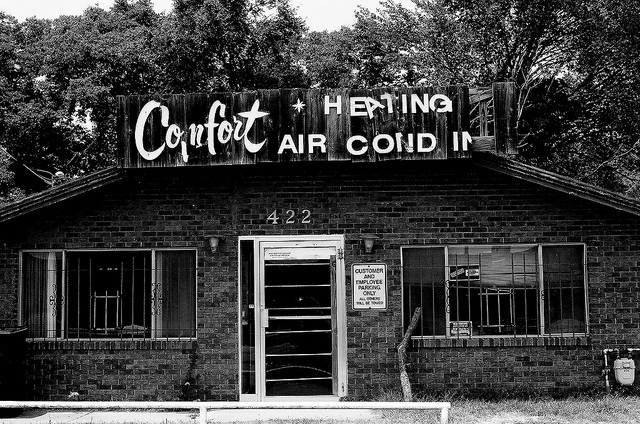Move out of your comfort zone. You can only grow if you are willing to feel awkward and uncomfortable when you try something new. – Brian Tracy

Where do you feel most at home in your work-life?
When are you the least anxious, stressed or threatened?
What situations present you with little strain or tension?
Your answers may reveal your comfort zone(s).
What about public speaking? For some just the thought of presenting before a large group creates anxiety, sweaty palms, and a dry mouth. I love it.
Fear and Comfort Strange Partners
The last couple of weeks my articles have invited you to move beyond fear to freedom.
Have you noticed situations do not have to be life threatening to render us stuck in self-limiting behavior? It’s true; a perceived threat or push back against us or our ideas can stir up fear and hinder our performance.
In fact, anticipation of “danger” often keeps individuals in their comfort zones. Fear is the gatekeeper of our comfort zones.
Why do we like it there?
In the past week, when did you relax?
Let me help you out – if you trying to remember what it means to relax?
To spend time resting or doing things for pleasure, especially in contrast to or as a relief from the effort and stress of everyday life; to become less intense and concentrated; to become less anxious, hostile, defensive, or formal. (Encarta Dictionary)
Now, with this meaning in mind, how often do you relax?
- When do you spend time resting or doing things for pleasure?
- How have you lightened up?
- How intense are you … really?
Reality Check for Business Today
Increased stress in the work place is real. In his CFO article “Why Your Top Talent Wants Out” David McCann reports:
Employers appear to be missing the boat in their assumptions about what drives valued talent to seek opportunities elsewhere, judging from new research by consulting firm Towers Watson.
Human-resources professionals at 316 North American organizations identified opportunities for promotion as the top reason (among 23 listed on the survey) that high performers would leave. In a separate study of more than 10,000 employees, work-related stress was cited as the chief factor. Getting promoted was the second item on their list, but work stress didn’t crack the top five on the HR pros’ list.
“It points to a lack of awareness, and a resulting attrition risk that could play out if and when labor markets improve,” says Laury Sejen, global leader for Towers Watson. “Coming out of the recession, there’s been a mind-set shift from employees that employers may not have kept up with.”
Yet companies acknowledge they’ve been pushing people to work harder. In the survey, 65% of the HR people said employees have been working more hours than normal over the past three years, and 53% said workers will continue to put in the expanded hours over the next three years.
What is the affect of more pressure and stress on performance? How might too little time for relaxation decrease innovation?
Back to the question: Why do we like comfort zones?
Perhaps part of the answer is the need to relax. In the midst of such intensity who doesn’t desire a place of comfort?
What is a comfort zone?
Consider Alasdair White’s explanation of comfort zone in his eBook, From Comfort Zone to Performance Management:
The comfort zone is a behavioral state within which a person operates in an anxiety-neutral condition, using a limited set of behaviors to deliver a steady level of performance, usually without a sense of risk (emphasis added). [Wikipedia]
Where is your worry-free time and place? For some people finding such space it difficult; it’s inconceivable to even think about leaving it.
Unfortunately, security means most people live below their potential. Their life is marked by what it takes to get by, unwilling to take the risk.
How does this help explain the temptation to stay in a comfort zone? The thought goes … Life is stressful enough without leaving my “cozy zone”. What’s wrong with having a comfort zone?
It comes down to two reasons we embrace comfort zones: fear and weariness. To break out of a comfort zone requires energy to push through the fear and evaluate another approach.
What do you think? Please comment below.
Newly released, available to you and your team, a must have book:
THE PEOPLE PROJECT:
Your Guide to Changing Behavior and Growing Your Influence as a Leader
Order your copy today!
*Brian Tracy (Self-help Author, Motivational Speaker); 1944 – Source: ThinkExist
Photo Source Steve Snodgrass on flickr


Leave a Reply